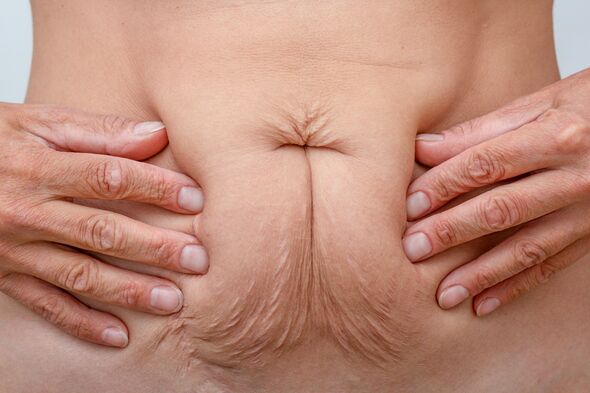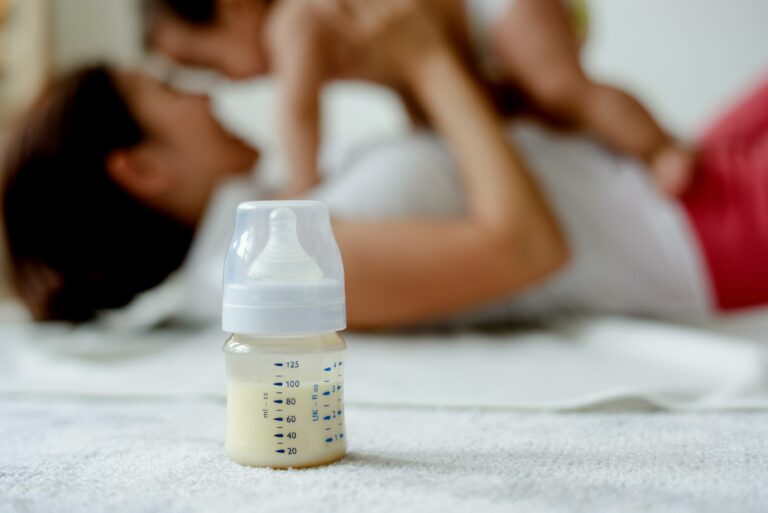Postpartum Weight Control Short-Term Strategies
Introduction
Pregnancy is a dynamic process that causes changes in the physical and psychological state of a woman; one of the most apparent modifications is weight. During production, a number of mothers want to reduce their size and lose some weight, which makes them quickly regain their normal weight after delivery. However, the process can be complicated by fluctuations in hormonal levels, as well as a physical and psychological recuperation of the woman’s body after childbirth, together with the expectations and responsibilities associated with the role of a mother. This paper seeks to discuss the common factors that lead to excessive or poor body weight gain post birth, how the goal of an ideal body weight can be achieved, and why every woman needs to take good care of herself during this transitional period.
Understanding Postpartum Weight Retention
Postpartum weight retention is the weight that a mother gains during pregnancy and is still attributed to her after childbirth. Gaining weight in pregnancy demands, on average, 25 to 35 pounds. As indicated by the American College of Obstetricians and Gynecologists, the average woman must shed around one and a half pounds every day and will be left with nearly 13 pounds after the shedding of the baby, placenta, and amniotic fluid. The rest of the extra weight resulting from the increase of the amount of fluids that is contented in the body and having large breasts and fat deposits will take some time to shed off.
Factors Influencing Postpartum Weight
Several factors can influence how quickly and effectively a mother loses postpartum weight:Several factors can influence how quickly and effectively a mother loses postpartum weight:
Hormonal Changes: Some of the factors that have been witnessed to influence postpartum weight retention include hormones. In particular, while pregnant, women have high levels of both progesterone and estrogen in their bodies, which substantially decrease after childbirth; therefore, the issue of metabolism and weight loss.
Pre-pregnancy Weight: In this regard, it is apparent from the research that women who enter pregnancy at a higher weight will have a higher probability of achieving a higher weight after the delivery.
Weight Gain during Pregnancy: Obesity before conception and pregnant women increases the chances of gaining a lot of weight in pregnancy and increases the chance of postpartum weight retention.
Lifestyle Factors: Pre-pregnancy weight and weight gain practices also influence the postpartum weight since diet and physical activity is also determined before pregnancy and during the period.
Breastfeeding: This is because, through breastfeeding, numerous weight loss procedures get eased and made easier to afford. It burns more calories and aids in the shrinking of the uterus; however, its role in the burning of fats differs among women.
Age: Larger framed women also have a slower metabolism, so overweight older mothers may stand a lesser chance than a young slim woman.
Sleep Deprivation: The result showed lack of sleep that is usual with new mothers affects the hormones that control appetite and weight.
Managing weight gain after pregnancy depends on several factors concerning the female’s eating habits and active lifestyles to ensure that the female regains as much body weight as possible.
The changes in body weight after childbirth require proper nutrition, exercise, and psychological assistance. Here’s how new mothers can approach weight loss safely and effectively:Here’s how new mothers can approach weight loss safely and effectively:
Set Realistic Goals
Understand Time Frame: Any woman who aims at losing weight has to be aware of the reality out there to avoid setting for themselves high goals that cannot be met. Indeed, diets may lead to quick weight loss, which may be dangerous when breastfeeding.
Healthy Weight Loss Rate: The details regarding the general safety of the amount lost are detailed that for the first seven weeks require postpartum weight loss of about 1 to 1.5 pounds per week.
Focus on Nutrition
Balanced Diet: Instead of going on a diet, mothers are advised to consume foods rich in nutrients as part of the nutrition diet. Ensure incorporation of whole grain items, protein, fruits, and vegetables; avoid foods with saturated fats and added sugars.
Hydration: It is advisable to take many fluids, as metabolism is important to lose calories; this is important to breastfeeding mothers.
Moderation, Not Deprivation: Instead of mastering the art of skipping meals or taking very few calories, moderation can be used in losing weight in the appropriate way.
Incorporate Physical Activity
Consult a Healthcare Provider: In any case, prior to engaging in a postpartum exercise regime, it is advisable to consult a healthcare professional and obtain a medical go-ahead, especially if a woman had a C-section or any difficulties during childbirth.
Start Slow: To start, go for a light warm-up, which may include taking a walk or walm up stretching. Gradually increase the level of intensity with exercises such as yoga, swimming, or other mild aerobic exercises.
Routine is Key: It is important to make daily exercise a part of the daily schedule, no matter how small the amount of time towards it.
Sufficient sleeping is another lifestyle factor that plays a crucial role in leading a healthy lifestyle. People should take their stress issues seriously.
Sleep: Sleeping for several hours helps with the control of hormones that are related to stress, such as cortisol, that leads to the addition of size.
Stress Management: Practices like breathing exercises, mindfulness, and meditation lower the stress levels, and this is essential when it comes to handling weight issues.
Seek Support
Social Support: It may help to converse with other moms for inspiration and hear tips on how to lose weight after having a baby.
Professional Guidance: Dietitian or fitness experts who deal with postpartum issues should be consulted; this is important as they will give more specific advice as well as words of encouragement.
Self-acceptance and body positivity are the tools for influencing the perception of one’s life.
Some of the tips on how to adjust to the changes that come with the body after pregnancy include accepting change. It is important for new mothers to:
Accept the Changes: Assume that conditions such as stretch marks will remain on the skin surface as the body could not be expected to go back to the initial pre-pregnancy shape. Recognize and honor the body for what it is has achieved in terms of childbirth.
Avoid Comparison: This is the last thing that people should do, especially to themselves perfectly, and this is, comparing oneself to others. Weight loss and fatality, as may be noticed, are personal issues.
Body Positivity: Whereas it applies yet more pressure on weight loss, it should applaud the physical strength and all it has to go through.
Conclusion
A better approach to weight loss during the postpartum period is understanding that it is a process that may take some time, with achievable objectives in an environment that is conducive to the process of weight loss. This is through diets with a balanced energy intake, realistic exercise, proper sleep, and reduction of stress that are essential in the management of body weight after childbirth. Psychologically and physically, it is also necessary to maintain a healthy attitude toward one’s body and accept oneself. To end it, one of the aims is not simply to shed the pregnancy weight but to come out of this difficult phase fitter, healthier, and happier.







